|
|

|
About Magic
Magic is people learning and communicating how humans can further common good by practicing valuescience—scientific methods and principles applied to questions of value.
What We Do
We work in a radical, integrated, scientific way to increase human satisfaction and reduce human suffering.
By "radical" we mean that we go to the roots of dissatisfaction and suffering. We perceive those roots to lie in misinformation about value—about what people want, how to get it, and most importantly, how we can know these things.
We use "integrated" to denote two things. First, we mean that we aim to simultaneously: cultivate individual health and awareness, promote social justice, peace, and freedom, and increase and protect wealth, including environmental quality. Second, we mean that we work both as a "think tank," to generate new ideas and assess the validity of information from diverse sources, and as a hands-on organization to demonstrate how people can use valuescience to inform more effective action for common good.
By "scientific" we mean that we: (1) hold ideas open to question; (2) observe self and surroundings carefully; (3) search for pattern on which to base accurate prediction; (4) experiment to test ideas; and (4) apply lessons learned by others practicing science.
We research, teach, counsel, consult, lecture, publish, and conduct demonstration projects. Central among Magic's programs is a residential service-learning community where participants are joined in learning to apply valuescience to discern and further common interests of humankind.
Since Magic's founding, tens of thousands of people have benefitted directly, and many more have benefitted indirectly from the work done in its name. Magicians' achievements in health education, dispute resolution, community development, and environmental stewardship have been honored with local, national, and international awards and recognition, including acceptance for presentation at peer-reviewed scientific conferences and publication in top-tier scientific journals. The Magic residential service learning community has been featured in the Communities Directory, A Guide to Intentional Communities and Cooperative Living, in Communities, a Journal of Cooperative Living, in Stanford magazine, and in a variety of other print, film, and audio media.
Going forward we're concentrating on explicit communication about how and why to practice valuescience. We're producing additional presentation media, developing curricula (especially for residential service learning), and writing more for publication. We're also growing the Magic community of service with special attention to a target audience of innovators and early adopters. And we're improving and adding facilities to support more effective and expanded service, and to better "walk our talk."
Why We Do It
We work for common good because we perceive that essential to our own satisfaction.
We take a valuescience approach because: (1) the human condition is increasingly a reflection of action based on ideas about value; (2) enormous and growing adverse and unanticipated consequences of human action evidence widespread and numerous mistaken ideas about value, and more importantly, about how we can recognize and enjoy value; and (3) valuescience is the sole demonstrated means for more accurately discerning and more fully realizing value, that is, for informing behavior by which we make desired outcomes more common and deleterious outcomes less so.
We make communication about valuescience central because: (1) though everyone practices valuescience to some degree, few of us do so consciously, all of us tap only a fraction of its potential, and all suffer as a result of relying sometimes on other methods; (2) though many individuals and organizations are tiptoeing towards greater utilization of valuescience, few have acknowledged, many contest, and many flatly deny necessity for replacing other ways of knowing value with it; and (3) we perceive that broad acceptance of this necessity is essential to successful human adaptation.
We research, teach, and conduct hands-on projects because we consider both ideas and their implementation to be important. We aim to contribute valid theory in which to ground effective practice, and effective practice in which to ground valid theory. We base Magic in a residential service-learning community so that we may better "walk our talk" because we hear a ring of truth in Thoreau's words, "What you are speaks so loudly that I cannot hear a word you say."
Who We Are
Three fellows, each with a tenure of more than fifteen years, shoulder primary responsibility for operating Magic. Several dozen associates and affiliates, including about a dozen who live in the Magic residential service learning community, play key roles. Operating personnel are overseen by a board of directors and draw upon counsel from a board of advisors. Each year hundreds of volunteers, donors, clients, and program participants contribute labor, material, money, and advocacy to make Magic.
What You Can Do
We invite your partnership in valuescience-based philanthropy. You can invest in many ways: learn, be a client, volunteer, donate, advocate, or simply give us your thoughts about what we are and do.Magic.
Housing
Status: We have land we have developed on
Area: 0.5 acres
Current Residence Types: Room(s) in a house or building
Current Number of Residences: 3
Housing Provided: Rental, Work-exchange
Land owned by: Another form of Non-profit
Membership
Adult Members: 17
Child Members: 3
Percent Women: 41-49%
Percent Men: 51-60%
Visitors accepted: Yes
Open to new Members: Yes
Government
Decision Making: By a board, council, group of elders, or leadership group
Identified Leader: No
Leadership Core Group: Yes
Economics
Dues, Fees, or Shared Expenses: Yes
Shared Income: Partial share of income
Sustainability Practices
Energy Infrastructure: We are connected to the grid.
Current renewable energy generation: Almost All, around 90%
Energy sources: Solar
Planned renewable energy generation: 100%
Current food produced: 0%, or close to 0%
Planned food produced: 0%, or close to 0%
Food produced locally: From 50-75%
Lifestyle
Common Facilities: Common House, Garden(s), Vehicle Share, Library, Workshop, Large Scale Kitchen, Gym or sports area, Internet
Internet Available: Yes, community provides it
Internet Fast?: Yes, exceptionally.
Cell Phone Service: Good for most people.
Shared meals: Approximately all dinners
Dietary Practice: Omnivorous (plants and animals), Local (food sourced within 150 miles), Organic (no pesticides or synthetic fertilizers), GMO Free (only non-genetically modified organisms), Mostly Vegetarian, Mostly Vegan, Opportunivore (dumpster diving, nature harvesting, etc.), Dairy-Free, Gluten-Free
Dietary Choice or Restrictions: No – people may eat however they wish.
Special Diets OK: Sometimes
Alcohol Use: Yes, used seldomly, or ceremoniously.
Tobacco Use: No, this community does not permit tobacco use.
Common Spiritual Practice(s): Not a particularly spiritual or religious community
Spiritual Practice Expected?: No
Education Style(s): Up to each family or individual
Healthcare Options: Up to each family or individual
Source: http://www.ecomagic.org/publications.shtml
https://www.ic.org/directory/magic/
|
|
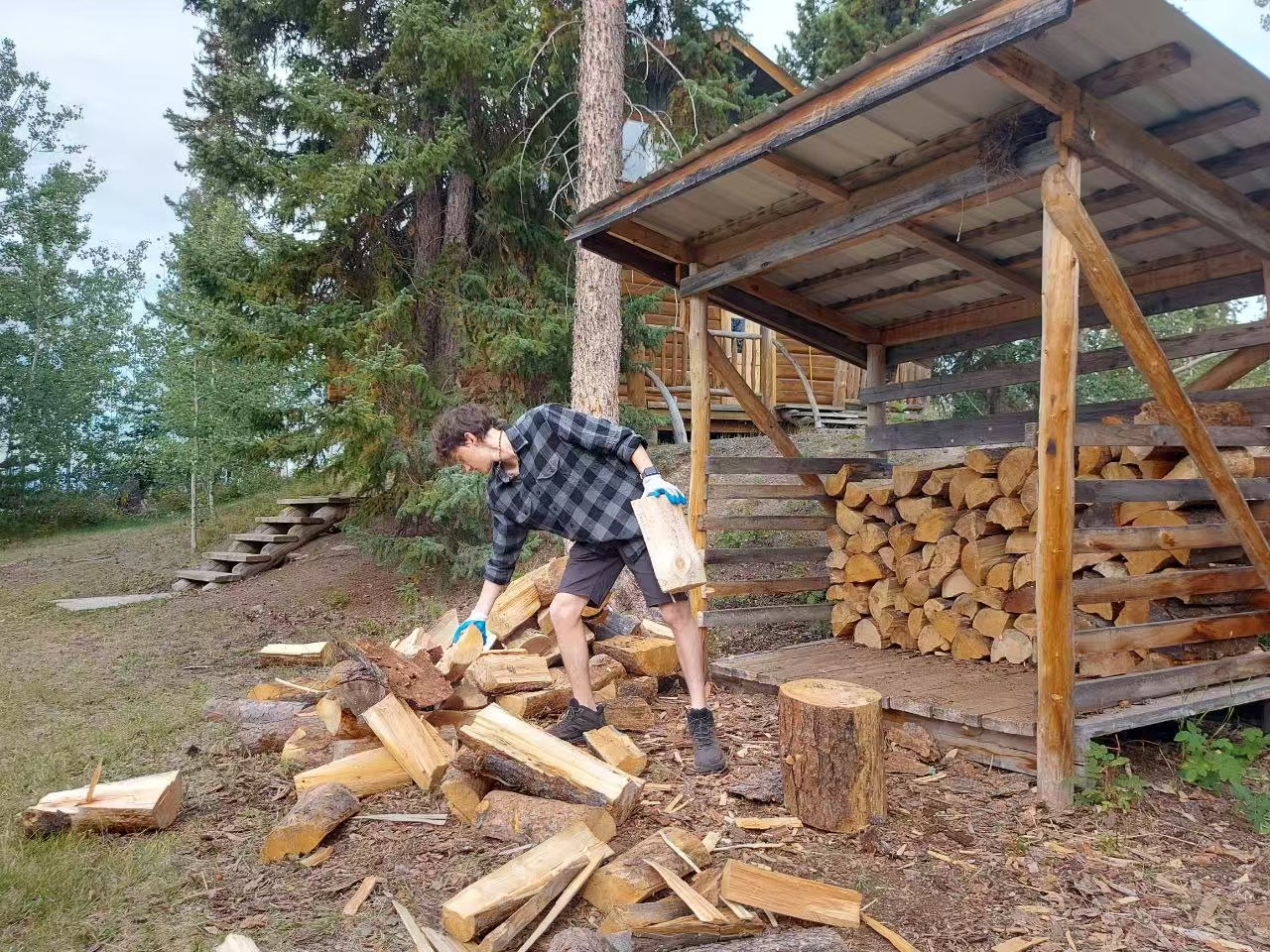 Haha, I’ve got a helper now!
Xuefeng
September 8, 2024
(Translation edited by Q
Haha, I’ve got a helper now!
Xuefeng
September 8, 2024
(Translation edited by Q
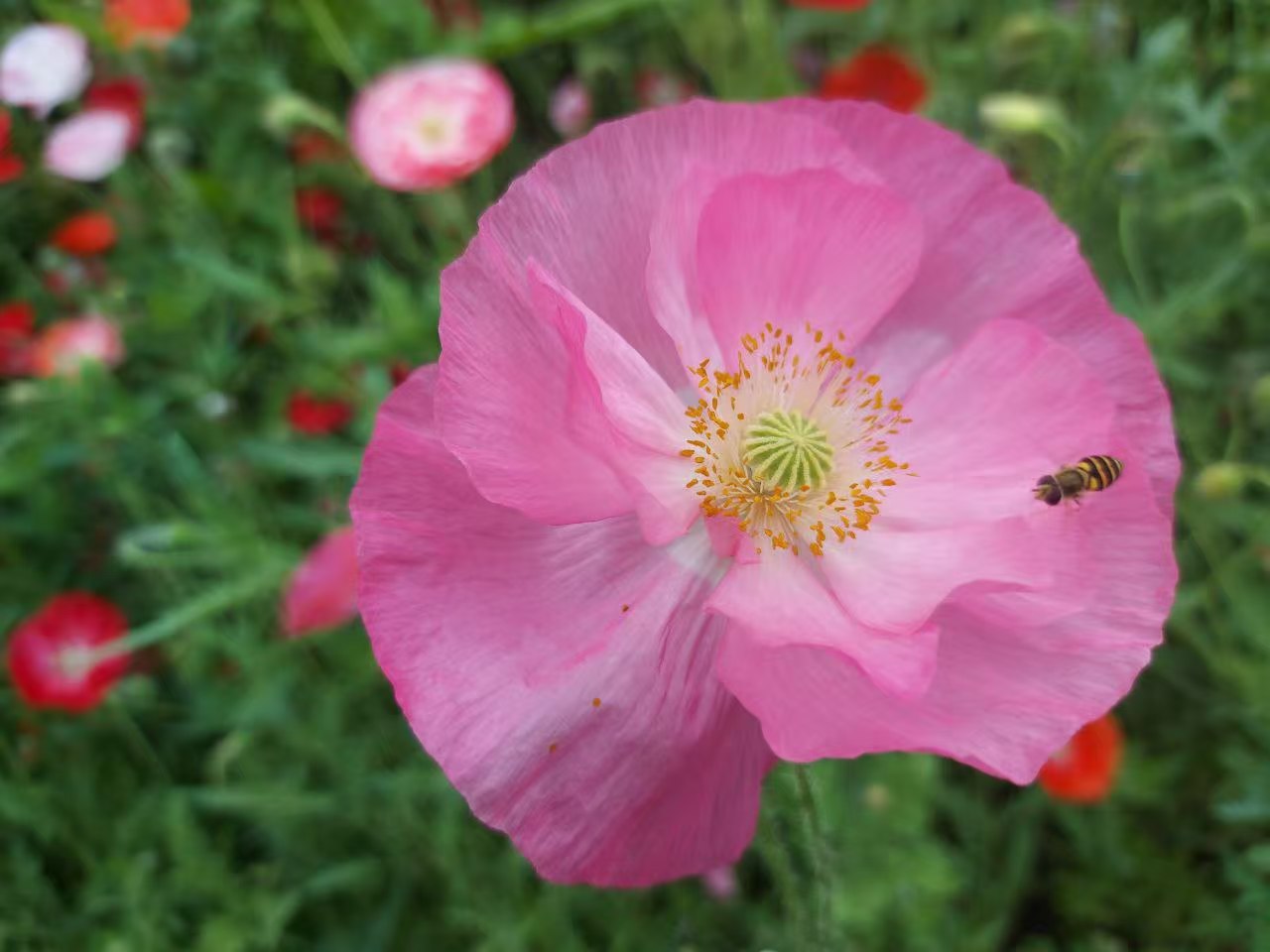 Haha, I felt young again!XuefengYesterday morning, after breakfast, I started ch
Haha, I felt young again!XuefengYesterday morning, after breakfast, I started ch
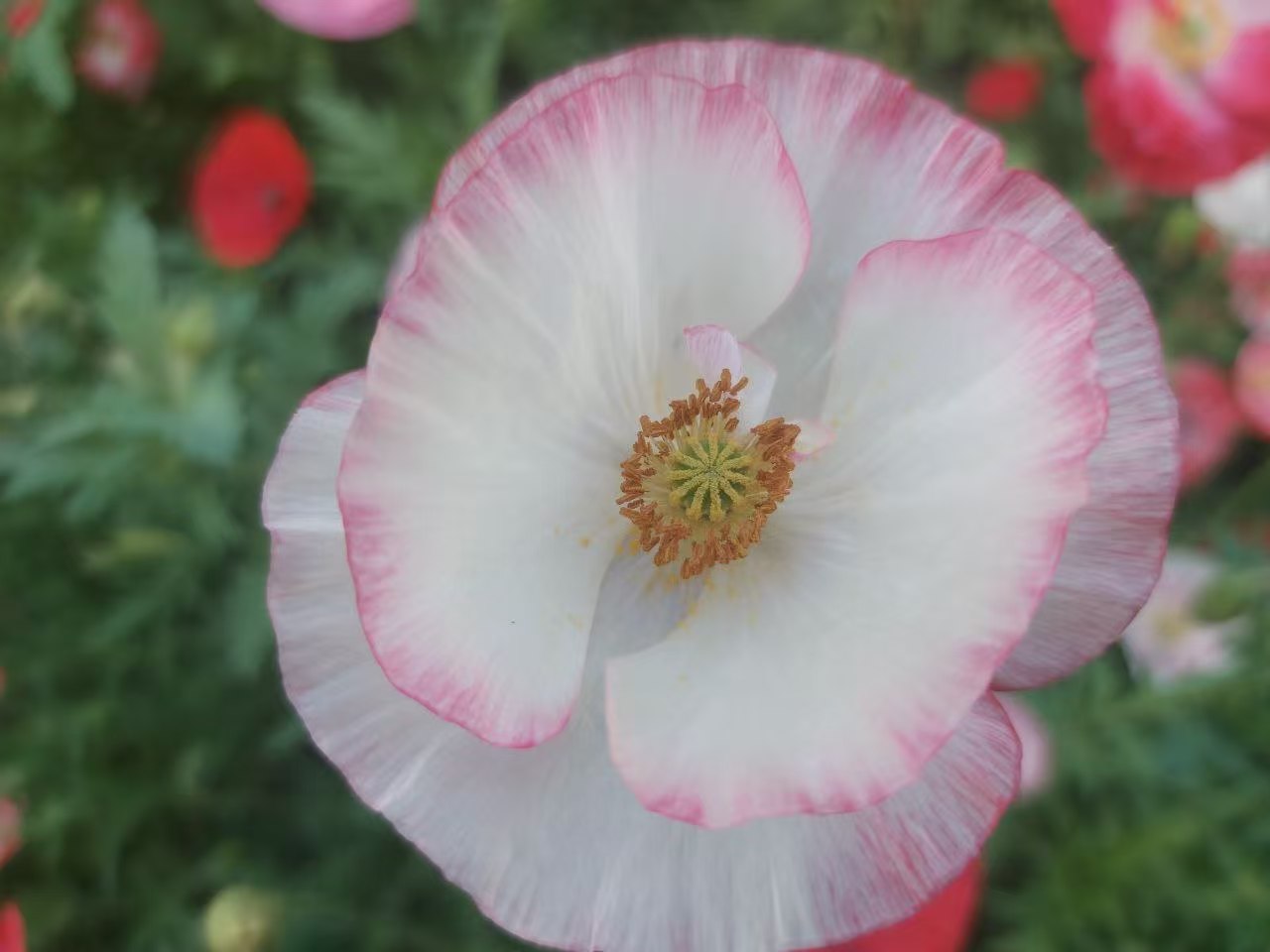 Papaver rhoeas: The Designated Flower of Lifechanyuan
by Xuefeng
August 20, 2024
Papaver rhoeas: The Designated Flower of Lifechanyuan
by Xuefeng
August 20, 2024
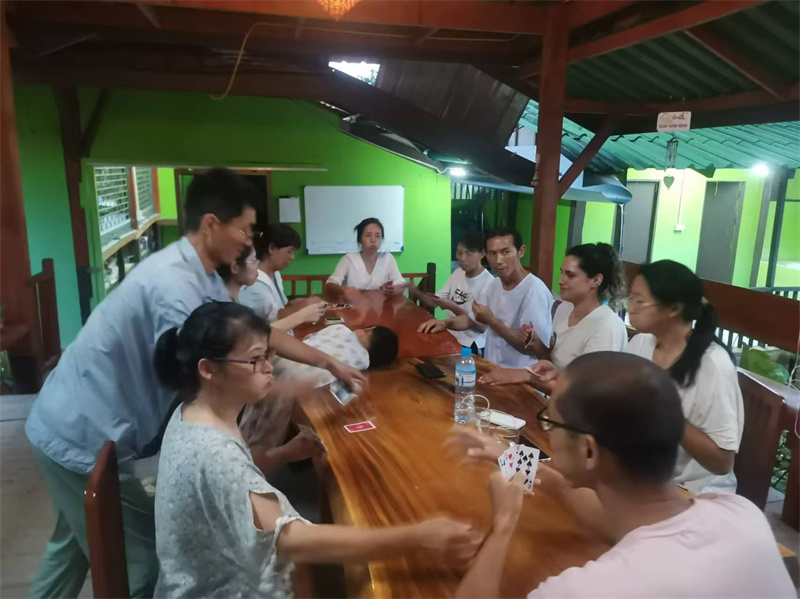 Joyful Games and Warm Welcome for Gabi at Lifechanyuan's Thai Home
Qianzi Celest
Joyful Games and Warm Welcome for Gabi at Lifechanyuan's Thai Home
Qianzi Celest
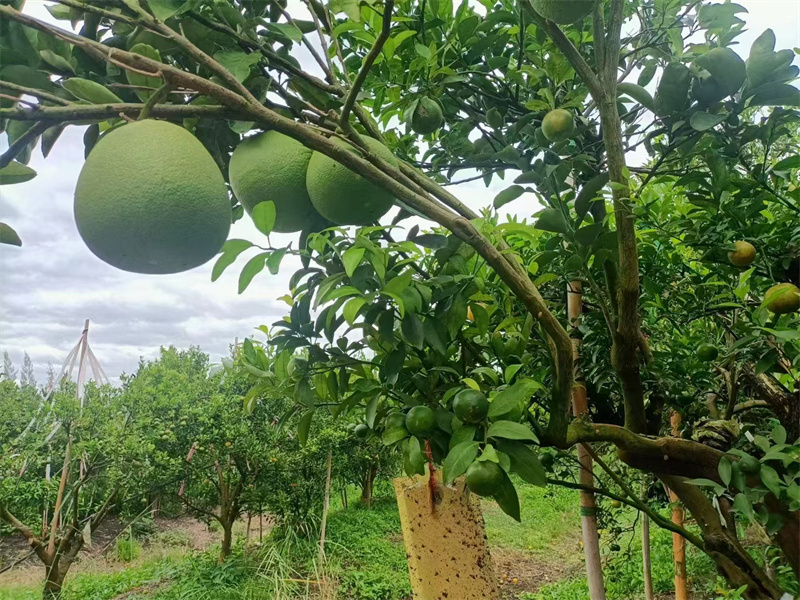 Chilean Girl Gabi Experiences the Life of Lifechanyuan Thailand Second Home Comm
Chilean Girl Gabi Experiences the Life of Lifechanyuan Thailand Second Home Comm
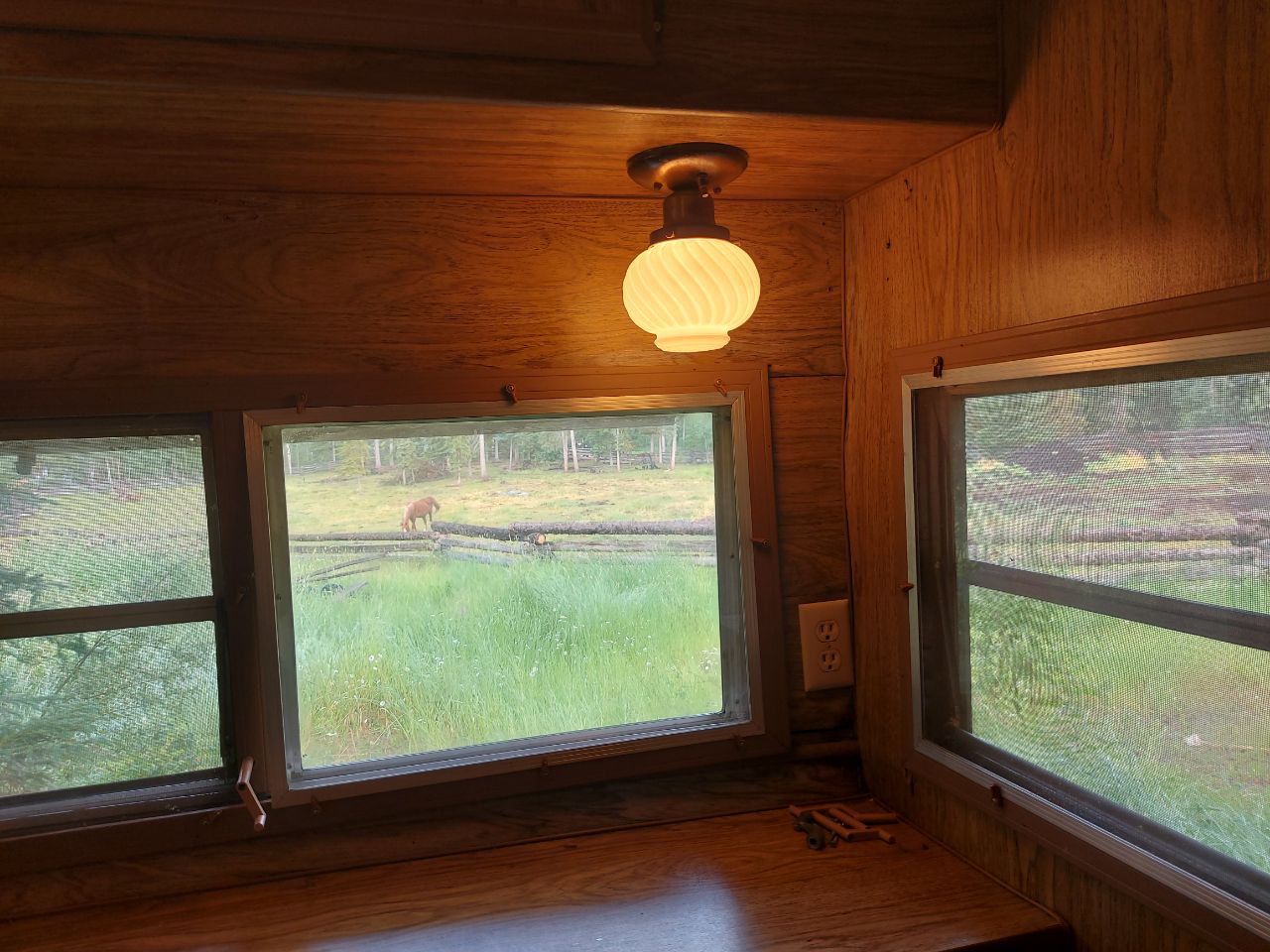 Another Clean and Tidy Joy House
In the tourist resort Holy Land Home, the guide
Another Clean and Tidy Joy House
In the tourist resort Holy Land Home, the guide
 Post time 2018-02-20 21:05:36
|
4783views0replies
Show the author posts only
|View large image
Post time 2018-02-20 21:05:36
|
4783views0replies
Show the author posts only
|View large image
 |Descending
|Read mode
|Descending
|Read mode





 Favorites
Favorites Relay
Relay Shares
Shares Collection
Collection